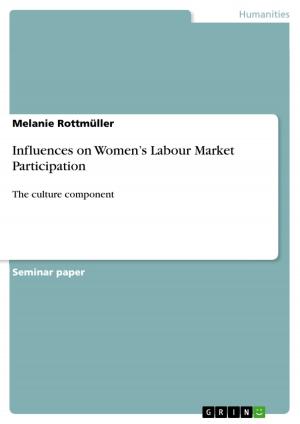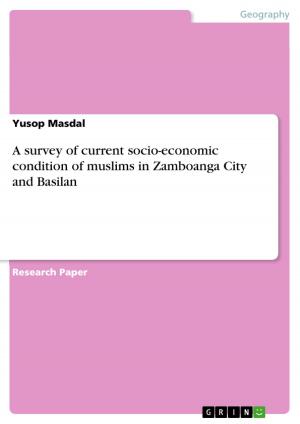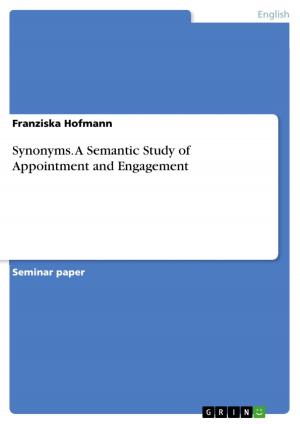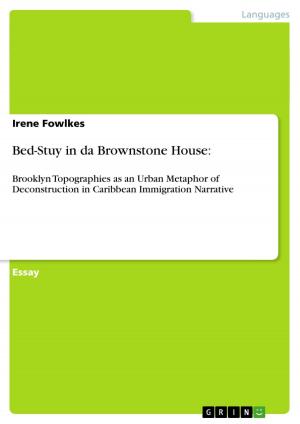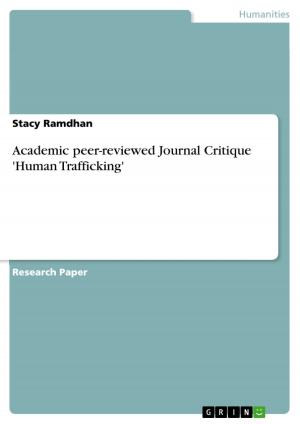| Author: | Dominik Wohlfarth | ISBN: | 9783638243469 |
| Publisher: | GRIN Publishing | Publication: | January 9, 2004 |
| Imprint: | GRIN Publishing | Language: | English |
| Author: | Dominik Wohlfarth |
| ISBN: | 9783638243469 |
| Publisher: | GRIN Publishing |
| Publication: | January 9, 2004 |
| Imprint: | GRIN Publishing |
| Language: | English |
Seminar paper from the year 2003 in the subject English Language and Literature Studies - Linguistics, grade: 2,0 (B), University of Freiburg (English Seminar), course: Proseminar Semantics, 15 entries in the bibliography, language: English, abstract: 1. An unmarried man. 2. A young knight in the service of another knight in feudal times. 3. A male animal that does not mate during the breeding season, especially a young male fur seal kept from the breeding territory by older males. 4. A person who has completed the undergraduate curriculum of a college or university and holds a bachelor's degree. As one can see, these are quite different definitions which are worth to be analysed more precisely. Scheler (1977: 82), who gives an etymological categorization, states that all these definitions derive out of the Latin word ´baccalarius´, which meant ´labourer on an estate´. Meaning one came up around 1300 and is according to Goddard (1998: 31) not a very precise meaning of the word though, because he says 'priests are not bachelors although they are unmarried men [...] (and therefore) someone who genuinely doesn't know the word would be misled.' In this case it also implies some kind of eligibility to get married, which is not clear by definition. This definition is the mostly used one today and almost all example sentences in the British National Corpus revealed the same definition as in example (1): (1) The best stories, though, are perhaps the first, about a middle-aged bachelor farming alone after his mother dies, and the last, about a member of the village brass band picking up a woman on a bus trip to Venice.
Seminar paper from the year 2003 in the subject English Language and Literature Studies - Linguistics, grade: 2,0 (B), University of Freiburg (English Seminar), course: Proseminar Semantics, 15 entries in the bibliography, language: English, abstract: 1. An unmarried man. 2. A young knight in the service of another knight in feudal times. 3. A male animal that does not mate during the breeding season, especially a young male fur seal kept from the breeding territory by older males. 4. A person who has completed the undergraduate curriculum of a college or university and holds a bachelor's degree. As one can see, these are quite different definitions which are worth to be analysed more precisely. Scheler (1977: 82), who gives an etymological categorization, states that all these definitions derive out of the Latin word ´baccalarius´, which meant ´labourer on an estate´. Meaning one came up around 1300 and is according to Goddard (1998: 31) not a very precise meaning of the word though, because he says 'priests are not bachelors although they are unmarried men [...] (and therefore) someone who genuinely doesn't know the word would be misled.' In this case it also implies some kind of eligibility to get married, which is not clear by definition. This definition is the mostly used one today and almost all example sentences in the British National Corpus revealed the same definition as in example (1): (1) The best stories, though, are perhaps the first, about a middle-aged bachelor farming alone after his mother dies, and the last, about a member of the village brass band picking up a woman on a bus trip to Venice.



